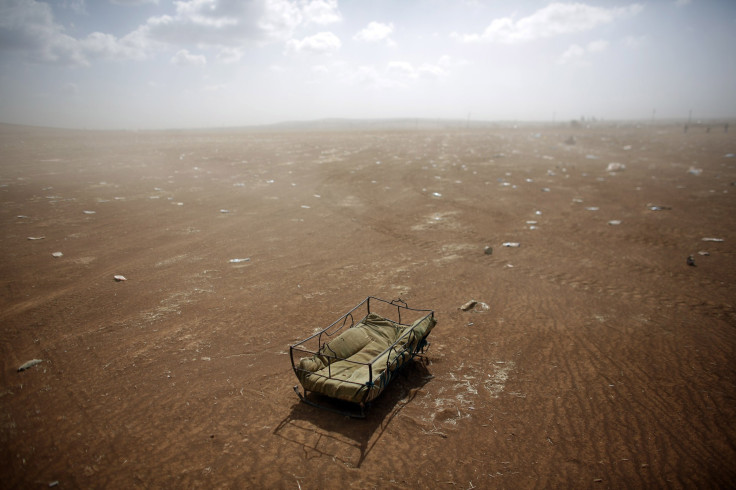Syrian Drought, Triggered By Man-Made Climate Change, Spurred Civil War: Study

A prolonged drought in Syria, exacerbated by man-made climate change, played a crucial role in pushing the country toward a brutal, protracted civil war that has so far cost 200,000 lives, according to a new study published Monday in the journal Proceedings of the National Academy of Sciences.
Before the start of the Syrian uprising in 2011, when nationwide protests erupted against President Bashar Assad, Syria experienced one of the most severe droughts in recorded history. The drought, which lasted from 2007 to 2010, reportedly triggered an exodus of nearly 1.5 million farmers to cities in search of food and work.
“There are various things going on, but you're talking about 1.5 million people migrating from the rural north to the cities,” Richard Seager, a climate scientist from Columbia University, who co-authored the paper, reportedly said. “It was a contributing factor to the social unraveling that occurred that eventually led to the civil war.”
Prior to the war, with nearly 30 percent of the country’s workforce engaged in agriculture, the sector constituted 40 percent of Syria’s GDP, according to a report by the journal New Agriculturist. The 2007 drought drastically reduced grain production in the country, which was still largely dependent on seasonal rains.
Coupled with Iraqi refugees fleeing the war in their country, urban areas in Syria reportedly saw a population jump of nearly 50 percent between 2002 and 2010, rising to 13.8 million from less than 9 million in this period. Overcrowding, poverty and corruption, which were rampant under Assad’s administration, eventually created levels of stress that led to violent civil unrest, the authors of the study said.
The study, carried out jointly by scientists from the University of California Santa Barbara and Columbia University, found that Syria’s average temperature has risen by nearly 2 degrees Fahrenheit since 1900, causing three of the country’s four worst droughts over the last three decades.
“We would not say and did not even attempt to say that the uprising was caused by climate change,” Colin Kelly, the study’s lead author, reportedly said. However, he added, the drought did “push them (Syrians) over the edge.”
The study comes just months after the U.S. Department of Defense warned that climate change, acting as a “threat multiplier,” could “intensify challenges of global instability.”
The study also found that countries in the once fertile eastern Mediterranean region -- the Fertile Crescent that gave rise to the first civilizations -- had also been adversely affected by anthropogenic climate change. Using data gathered from 25 climate stations in the region, the scientists reportedly found that every year between 1994 and 2009 witnessed temperatures higher than the twentieth-century average.
“The climate models predict that if global warming continues, if climate change continues, on the trajectory that it has, then what we're going to see is continued drying and warming of this region throughout the 21st century,” Kelly told VICE News. “And so that basically says the problem is only going to get worse.”
© Copyright IBTimes 2024. All rights reserved.






















